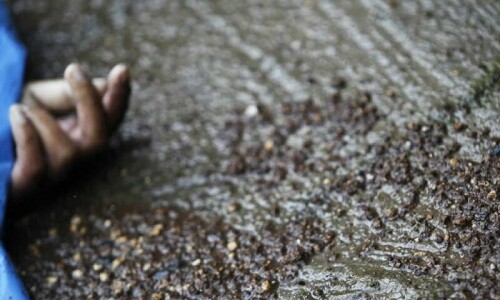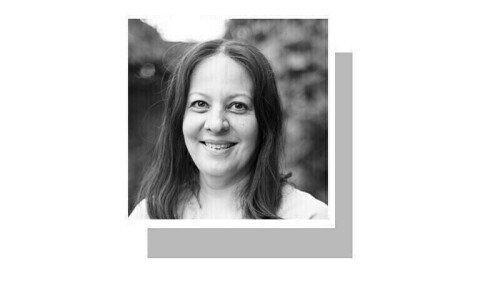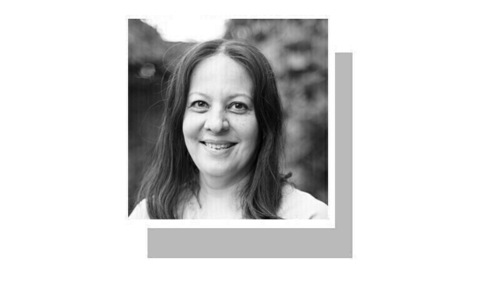The corporate news that grabbed the spotlight last week was the tie-up between two major pharmaceutical companies in the country.
The German company Merck KGaA executed a binding contract to divest its shareholding in Pakistan to Martin Dow Limited.
The companies entered into long-term agreements whereby Martin Dow (MDL) in Pakistan would have access to Merck’s healthcare and life science portfolios.
As a result of the buy-out, Merck Pakistan would not be dissolved but would continue to operate as a separate legal entity
But by divesting its major shareholding, Merck is not stepping out of Pakistan. The Marker family, the founder of Merck would remain a shareholder.
Earlier, Simon Sturge, CEO at Merck’s healthcare business had hinted that the divestiture was due to ‘strategic reasons’, though he stopped short of elaborating the point. As a result of the buy-out, Merck Pakistan would not be dissolved but would continue to operate as a separate legal entity.
In response to queries, Mr Jawed Akhai, Chairman of Martin Dow confirmed to this writer that Merck and MDL had become important strategic partners.
The ‘Scheme of Arrangement’ of the purchase/sale deal was kept under wraps. Pressed to disclose the financials of the two companies and to give an idea of how the take-over would work out, chairman of Martin Dow Jawed Akhai declined saying: “Both companies have agreed that they will not disclose the financial terms of this transaction”.
With the acquisition of Merck Pakistan, Martin Dow will have six manufacturing facilities in the country. Regarding the current standing of the two companies in the pharmaceutical sector, Mr Akhai said, globally, Merck stood at the 15th and Martin Dow at the 19th ranking as per IMS data (September 2016).
IMS is an American company that provides information, services and technology for the healthcare industry. “Going forward Merck Pakistan will continue to manufacture and distribute global and regional Merck brands”, said Mr Akhai.
The Martin Dow chairman also dispelled the employees’ fear of job losses or layoffs. “The transaction is just a change of ownership of shares while the employees will continue working under the same arrangement”, he said.
He reaffirmed that none of the operations would be shutdown and there would be no job terminations. Both companies would continue to operate independently as separate legal entities.
In order to further assuage employee fears, the company had agreed on a two-year job guarantee for all permanent and contract employees. “It is unusual in this type of transaction” the MDL chairman said. Merck will also pay its employees a welcome bonus at closing.
But what does MDL hope to achieve by the acquisition of Merck operations? Mr Akhai responded that Martin Dow would be vested with an opportunity to invest further in the capability of the sites. “With the Quetta plant (of Merck) we will have decades of expertise in manufacturing various drug categories – tablet, sterile, syrup and ointment. Martin Dow will produce a broad range of medicines for the cure and control of diabetes, cardiovascular diseases, cancer and vitamin deficiencies”, he said.
The acquisition would also have a synergistic impact on CNS, antibiotics, gastro and anti-inflammatory and analgesics portfolios. As a result of the tie-up, some major pharma products would pass on from Merck to MDL, but would continue to be manufactured in the same plants of Merck in Quetta and Karachi and marketed by the same field force.
The MDL chairman lamented that though drug pricing was one of the key issues, the major issue being faced, by not just the multinationals but also the national pharmaceutical companies, was uncertainty at the level of the Drug Regulatory Authority of Pakistan (DRAP).
“The industry is not sure about the turnaround time of DRAP regarding any issue whether it may be registration, licensing or pricing. As a result the industry cannot plan appropriately”, he complained.
Martin Dow was established in 1995 initially as a pharmaceutical marketing company in Karachi, which later acquired a manufacturing facility at Lahore in 2000 and Roch operations in Pakistan in 2010.
Founded in 1668, Merck is the world’s oldest pharmaceutical company. The founding family retains the majority equity in the group. In 2015, Merck generated sales of Euro 12.85bn in 66 countries.
Interestingly mergers and acquisitions in Pakistan have been concentrated mainly among multinationals and that too in pharmaceuticals. Wyeth Laboratories tied up with Cyanamid; Ciba-Geigy with Sandoz; Beecham with Smith Kline; Glaxo with Wellcome and Knoll Pharmaceuticals with Abbot.
All of that happened, inevitably in response to the global merger of their powerful parents.
SmithKline Beecham then went on to merge with GlaxoWellcome creating the country’s largest pharmaceutical firm — GlaxoSmithKline (GSK).
Published in Dawn, Business & Finance weekly, November 21st, 2016














































